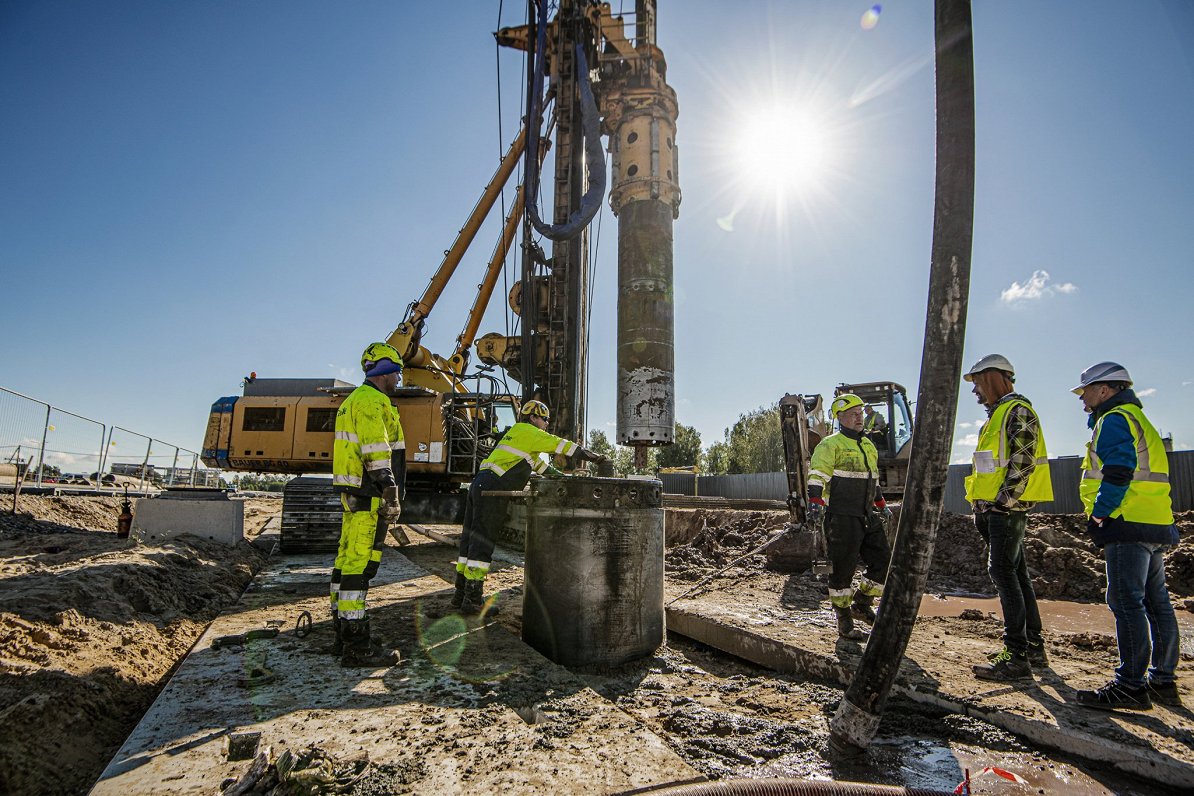"The Rail Baltica project is a geopolitically important object of national interest. It is an essential transport logistics and infrastructure solution to connect the Baltic states with the rest of the European Union," said Krišjānis Feldmans, the chairman of the National Economy Commission responsible for the progress of the bill in the Saeima. The chairman of the commission stated that the implementation of the project in the expected time is hindered by the requirements specified in the technical and special regulations requested by the state and local government institutions, as well as by the owners or legal owners of external engineering networks.
It is planned to determine that the technical or special regulations to be issued for the implementation of the project will not include requirements that provide for the development of a construction project unrelated to the construction and operation of the railway, and the design and construction of which do not comply with the provisions of the European Infrastructure Connection Instrument on project financing – in effect removing potentially long delays that could be caused by the existence of other proposed building projects along the route.
Also, the draft law envisages preserving national and local cultural monuments or their parts in the territory of the implementation of the "Rail Baltica" project. If the complete or partial preservation of a cultural monument in its existing place will not be possible, the National Cultural Heritage Administration will issue conditions for its research and relocation. On the other hand, the National Cultural Heritage Administration will exclude a cultural monument of local significance that cannot be preserved during the implementation of the project from the list of cultural monuments protected by the state, if it meets certain criteria. So some sites could in theory find themselves taken off the protection list and destroyed.
In the territory of "Rail Baltica" and the buildings connected with its construction, it is planned to allow felling of protected trees, "if there are no alternative solutions". In such a case, a positive opinion from an arborist and a permit from the Nature Protection Board will be required, the draft law provides.
It is planned to determine that the maximum duration of the construction works related to the implementation of the project will be eight years until the construction is put into operation. The validity period of the topographical plan prepared for the design of public railway infrastructure and structures related to its construction will be four years from the date of registration in the database of the local municipality.
Property required for the implementation of the project, which has been recognized as the property of the heirless and for which the claims of creditors have been filed and in the cases specified in the regulatory acts, the bailiff does not proceed with the expropriation, will be transferred to the Ministry of Transport. The ministry is also provided with the possibility to use undeveloped land of the reserve fund registered in the name of the state for the compensation of real estate owned by a private person to be expropriated for public needs. In other words, landowners whose properties are seized may be offered land elsewhere in exchange.
In order for the bill to enter into force, it must be supported by the Saeima in two more readings.
Saeima supports Rail Baltica bill
Take note – story published 1 year and 10 months ago

Publicitātes attēls
September 16, 2022, 10:43
In order to ensure the construction of the planned 'Rail Baltica' high-speed railway link through the Baltic states, and to remove obstacles that affect its timely completion, the Saeima conceptually supported a Rail Baltica bill on Thursday, September 15.
Seen a mistake?
Select text and press Ctrl+Enter to send a suggested correction to the editor
Select text and press Report a mistake to send a suggested correction to the editor
























